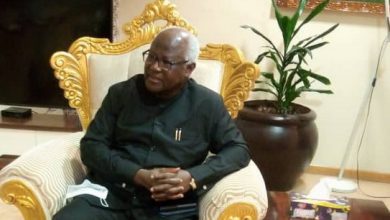Police scrutiny chief stopped and searched by officers ‘at least 60 times since the age of 13’
A 35-year-old black Lambeth councillor and vice-chairman of several police scrutiny committees has been stopped and searched at least 60 times since he was 13 — almost always because police assume he is a drug dealer.
A 35-year-old black Lambeth councillor and vice-chairman of several police scrutiny committees has been stopped and searched at least 60 times since he was 13 — almost always because police assume he is a drug dealer.
Mahamed Hashi, who has no police record, told the Evening Standard one of the most galling things about his experiences is that “every time I am put in handcuffs and I am always left feeling if I was white, I wouldn’t have been stopped in the first place”.
The most recent incident occurred last August when Mr Hashi, was sitting in his new BMW 5 series waiting for a friend when two white police officers knocked on his window and told him to “step out of the car”. When Mr Hashi asked why, they said it was to search him “under the Misuse of Drugs Act”.
When Mr Hashi asked what their grounds were, he was told, “you look young, your car looks expensive, we suspect you might be a drug dealer”.
He asked: “How old am I? How much did my car cost?” On both counts, the officer said he didn’t know. “So where are your grounds,” asked Mr Hashi.
A second officer started shouting “get out or be charged with obstruction”.
As soon as he stepped out, they handcuffed him. Mr Hashi said that he was told that because of his size (6ft 4in), he presented an “unknown risk”.
He added: “They searched me, found nothing, and said I had to sit in the police van while they went through my car. Again they refused my request to take off the cuffs. After 20 minutes, they told me I was free to go. They never once apologised for putting an innocent person in cuffs.”
Unbeknown to the officers, Mr Hashi is deputy chairman of a police-convened public order group at Scotland Yard as well as vice chairman of an independent advisory group for Trident, and had previously been chairman of the Stop and Search monitoring group in Lambeth.
When Mr Hashi contacted the commander of the police unit who had stopped him and complained informally, she promised to investigate and he received an apology.
Mr Hashi said the entire interaction was captured on the policeman’s body-worn camera. The fact that Mr Hashi had access to the top command made him “confident and patient there would be consequences”, he said.
Mr Hashi added that the matter was closed as far as he was concerned, but that he wanted wider lessons to be learned. “I told the police that I want what happened to be used as a training tool to show what a bad search looks like and how it leaves people feeling.”
A Met spokesman said: “Officers engaged with the man to listen to his concerns that he felt the main reason he had been stopped was his ethnicity. As a result, learning has been incorporated into training packages delivered to officers to improve the stop and search process.”
Despite his repeated experiences, Mr Hashi is a voice of hope on the subject of public protests against disproportionate targeting of black people by police. “The protests are useful because they show us how much deep feeling there is in our community, but we need an outlet for that feeling that leads to real change.
“What I want to see is better training of the police and for the community to be more involved in mechanisms that hold them to account. I am pleased that some elements of the police are making sure their recruits meet the community as part of their training. We need our police to be more representative of the black community as well.”





